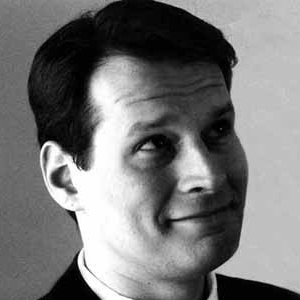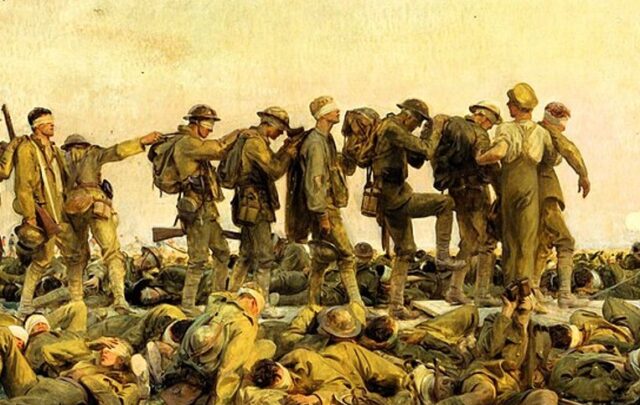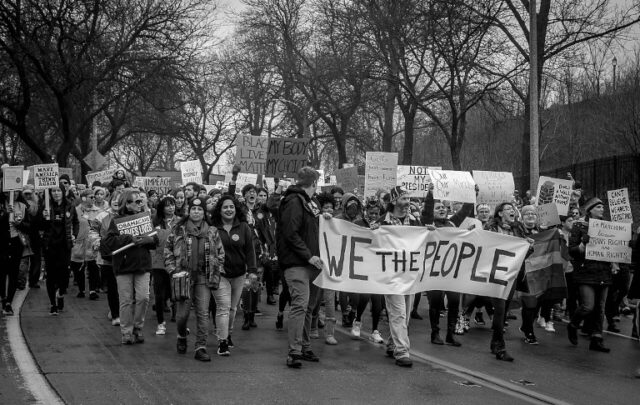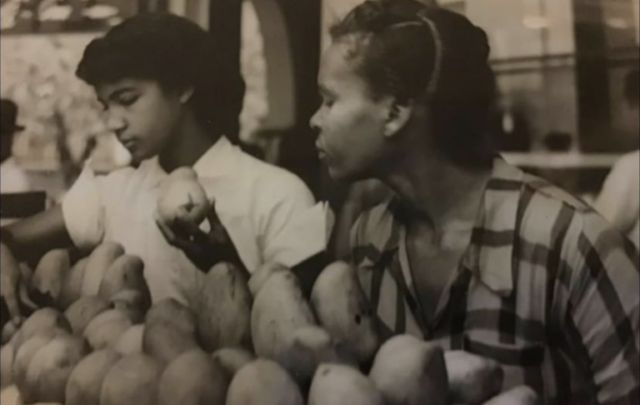NOTE: Images in this archived article have been removed.
In Resilience Reflections we ask some of our contributors what it is that inspires their work, and what keeps them going.
Read more Resilience Reflections here including Sandra Postel and Dan Allen.

Former newspaper editor Brian Kaller wrote his first magazine cover story on peak oil in 2004, and since then has written for the American Conservative, the Dallas Morning News, Front Porch Republic, Big Questions Online and Low-Tech Magazine. In 2005 he and his family moved to rural Ireland, where he speaks to schools and churches, and writes a weekly column for the local newspaper.
Brian introduces his Restoring Mayberry blog by saying “Let’s say we’ve lost most of the self-reliant skills and classical education that our forbears posessed. Let’s say we have replaced them with a culture of buying and discarding things we don’t value, and staring at glowing screens. Let’s say you want to try to rediscover an older way of life, believing we will need such things again. And let’s say you have a daughter.”
“Most of the inspirational people I’ve known aren’t in the public eye.”
Who/what has been your greatest inspiration? And why?
Everyone names famous people as their inspirations, but the more famous someone is, the more I wonder if they should be. We remember the generals but not the soldiers, the CEOs but not the secretaries, the billionaire who contributed millions to a cause and not, as the parable goes, the widow who contributed her last penny.
Even for every activist leader we admire, there are usually a hundred more who washed the dishes or knocked on doors, and didn’t get the attention. Most of the inspirational people I’ve known aren’t in the public eye, and I don’t want to name them without permission: homesteaders in the Ozarks, nuns I knew growing up, elderly neighbours here in Ireland.
Well-known authors I admire would include John Seymour, John Michael Greer, John Gatto, J.R.R. Tolkien, Wendell Berry, Rod Dreher, and William Catton.
Knowing what you know now about sustainability and resilience building, what piece of advice would you give your younger self if you were starting out?
Don’t worry too much about changing the world, because you won’t. You can, though, change a small patch of land, or a group of people’s lives, and that’s time well spent.
What keeps you awake at night?
I’m not worried about our species surviving – we’ll go on until we don’t. I care how much we lose our intellectual traditions and culture.
A century or two ago most people had real-world skills– they sewed clothes, fixed tools, raised animals, grew crops, played instruments and organised neighbourhood lodges, rather than moving a cursor that simulated these things on a screen. Also importantly, though, school-children often read Plutarch or Shakespeare, logic and rhetoric, and it showed — 19th-century oratory for rural American farmers showed a complexity that flummoxes college students today.
Most Westerners today, both on the left and on the right, have abandoned such cultural standards. Few people today know they were once commonplace or understand their value. I wonder how much more people will lose that by the time their screens go black for the last time. It will mean the difference between a sustainable civilisation or barbarism.
 What gets you up in the morning or keeps you going?
What gets you up in the morning or keeps you going?She’s ten.
What has been your biggest setback and how did you recover?
I did what many people do; I joined groups and got tangled in the internal politics. Eventually I left them behind, and years later they’re still bickering over the same things. I wish I knew an easier way to recover than to salvage what you can and leave the rest.
For you resilience is…?
Creating much more than you use up; not just in money, but in topsoil, or firewood, or neighbourhood goodwill. Slowly replacing each new thing in your life that breaks with either 1.) nothing, or 2.) something your grandchildren could leave behind.
What one social/political/cultural/policy change would most assist your work/hopes/dreams?
If governments – and particularly my native USA, which imprison millions of Americans – were to take prisoners or probationers and put them to work in the countryside, teaching them agrarian skills, they could get a great deal done at once.
Such projects could plant trees to cut down wind and keep soil in place, or phytoremediation crops on toxic land. They could teach skills that are otherwise growing scarce. They would make dangerous areas safer by removing aggressive and idle young males, many from broken families, while allowing those males to become important and knowledgeable citizens. They could take people who know only cement and show them trees.
“if you look at the world’s situation right now and feel a measure of grief, it doesn’t mean you’re sick, it means you’re decent. That feeling is why our species deserves to be saved.”
What gives you hope?
Most people sense something has gone terribly wrong with the world; they don’t agree on the specifics or the solutions, but they feel it in their bones. Our culture diagnoses such feelings, prescribe medicine for them, and offers screens to distract you from them. Entire ecosystems spring up – talk radio, conspiracy groups, online subcultures and new churches – to explain the world, and most just direct everyone’s frustration at some other group.
But if you look at the world’s situation right now and feel a measure of grief, it doesn’t mean you’re sick, it means you’re decent. That feeling is why our species deserves to be saved.
Another reason for hope: It took only small groups of people – suffragettes, civil-rights workers – to move mountains in the past, and you probably have far more wealth and privilege than they did. We possess greater fortune than any people in history, and have a responsibility to use it.

 What gets you up in the morning or keeps you going?
What gets you up in the morning or keeps you going?






















